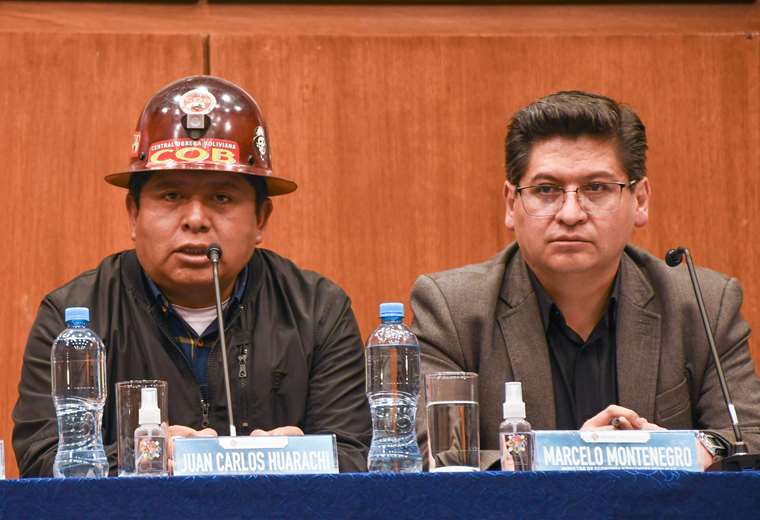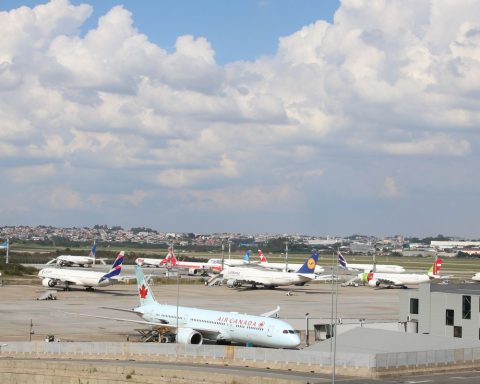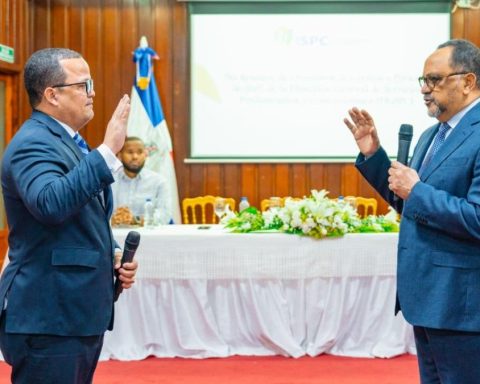April 24, 2024, 10:06 PM
April 24, 2024, 10:06 PM
The increase in the basic salary decided by the Government of Luis Arce increases the diet of the leadership of the Central Obrera Boliviana (COB) above 15,000 bolivianos. Among the beneficiaries is the executive secretary, Juan Carlos Huarachi, a Huanuni mining worker declared on commission for six years and who has a monthly salary of 15,450 Bolivians.
In October 2023, the observed Cobista leader, after denying the complaints against him of receiving alleged irregular collections of money in the “bribes” case, revealed that his salary as a worker at the state-owned Huanuni Mining Company, It was 15 thousand bolivianos. Taking into account this year’s increase of 3% to the base, the union leader’s salary will be of 15,450 bolivianos per month.
But it is not only the cobista leadership that benefits the most from the increase in salaries that the government dictates each year, union leaders from other sectors that boast high salaries also benefit, such as the representatives of oil workers whose Monthly salaries range above 20,000 bolivianoss, according to the revelation of the leader Rolando Borda who died in 2023. Already in 2022, the also leader of the Departmental Workers’ Center from Santa Cruz, said that these salaries were a “pittance” compared to that of leaders in other countries.
Seven days after May Day, International Workers’ Day, President Luis Arce along with the leaders of the COB announced that the increase in the national minimum wage will be 5.8% and 3% in the basic wage. This is equivalent to the retroactive national minimum wage as of January 2024 It will be 2,500 bolivianos.
President Arce has not yet approved the supreme decree of the salary increase for this year and is expected to do so on May Day. In Decree 4928 last year, the Government specified that this benefit reached four specific labor sectors: Teaching, health, Bolivian Police and Armed Forces.
It did not establish an increase in the allowances of parliamentarians, ministers, vice ministers or other high authorities of the Executive, nor an increase in the income of former presidents. This year’s standard is expected to have similar scope.
They see “discrimination” and unequal treatment of workers
Experts on the subject and legislators observe that the Government, when determining salary increases, “discriminates” against 80% of Bolivian workers and it only benefits the 20% who enjoy a fixed monthly salary, social benefits and health insurance, among others, compared to the vast majority who lack these privileges.
















